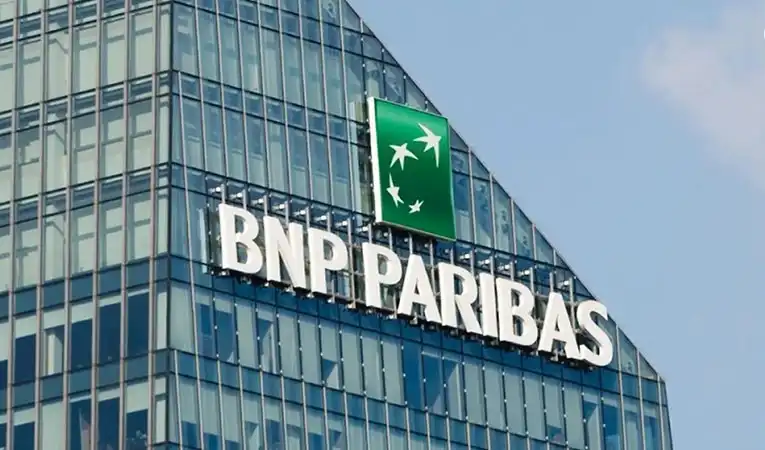Welcome to our latest blog post, where we will be exploring the various investment opportunities available in the United Arab Emirates (UAE). Whether you are a resident, an expatriate, or a foreign investor, the UAE offers a wide range of investment avenues to suit your financial goals. In this post, we will provide an overview of the Golden Visa program, delve into real estate investment opportunities, explore start-up investments and entrepreneurship, discuss investments in the stock market, bonds, and fixed income, shed light on investment opportunities in tourism and hospitality, and finally, touch upon investment in renewable energy projects. So, let’s dive in and discover the exciting investment prospects that await in the UAE!
Overview of Golden Visa in the UAE
The Golden Visa program in the United Arab Emirates (UAE) is a unique opportunity for foreigners to obtain long-term residency in the country. Introduced in 2019, this program offers individuals and their families the chance to live and work in the UAE for up to 10 years.
The Golden Visa is not limited to investors and entrepreneurs; it is open to professionals, students, and even retirees. The program aims to attract talented individuals and encourage long-term investment in the UAE.
There are several key benefits of the Golden Visa. Firstly, it provides long-term residency in the UAE, which means individuals and their families can live and work in the country without the need for a sponsor. This provides a significant level of freedom and flexibility. Secondly, Golden Visa holders have access to a wide range of services and amenities, including healthcare, education, and social benefits. Lastly, the Golden Visa offers a pathway to citizenship, which is a great opportunity for those looking to establish a permanent presence in the UAE.
Now let’s take a closer look at the eligibility criteria for the Golden Visa. To be considered for the program, individuals must meet certain requirements. These include having a valid passport, passing a security and health check, proving a source of income, and making a financial investment in the UAE. The investment can be in the form of real estate, business setup, or a fixed deposit. The exact amount required may vary depending on the category of the Golden Visa applied for.
Here is a table summarizing the different categories of the Golden Visa:
| Category | Investment Type | Minimum Investment Amount |
|---|---|---|
| Investors | Real Estate, Business Setup, Stocks | AED 10 million |
| Entrepreneurs | Business Setup | AED 500,000 |
| Specialists in Scientific Fields | N/A | N/A |
| Outstanding Students | N/A | N/A |
| Retirees | N/A | N/A |
It is important to note that the Golden Visa is subject to renewal and ongoing compliance with the program’s rules and regulations. Additionally, each category has its own specific requirements and benefits, so it is essential to thoroughly research and understand the criteria before applying.
The Golden Visa program in the UAE has opened up new investment and residency opportunities for individuals from around the world. Whether you are a high-net-worth investor, an entrepreneur, or a talented professional, the Golden Visa can provide you with a pathway to long-term residency and potential citizenship in the UAE.
Real Estate Investment Opportunities
When it comes to investing, real estate has always been one of the most popular options. The UAE offers a wide range of real estate investment opportunities for both locals and foreigners. One of the main attractions of investing in real estate in the UAE is the consistent growth of the market. The country has experienced a significant increase in demand for properties, thanks to its thriving economy and the influx of expatriates seeking job opportunities. Whether you are looking to buy residential or commercial properties, there are plenty of options available in the UAE.
One of the key advantages of investing in real estate in the UAE is the opportunity for high rental yields. With the constant growth of the population and an increase in the number of businesses, the demand for rental properties continues to rise. This presents a great opportunity for investors to earn a steady income from rental properties. Additionally, the UAE has implemented regulations to protect the rights of landlords and tenants, making it a favorable environment for real estate investments.
Another attractive aspect of real estate investment in the UAE is the potential for capital appreciation. Over the years, real estate prices in the country have shown a positive trend, with certain areas experiencing substantial price growth. This means that investors can not only benefit from rental income but also from the increase in property value over time. However, it’s important to conduct thorough research and analysis before investing in specific areas to ensure the potential for capital appreciation.
- Diverse Investment Options: The UAE offers a diverse range of real estate investment opportunities, catering to different preferences and budgets. Whether you are interested in luxury properties, affordable housing, or commercial spaces, there are options available for every investor.
- Tax Benefits: The UAE has tax advantages that make it an attractive destination for real estate investments. There is no income tax or capital gains tax on the sale of properties, allowing investors to maximize their returns.
- Stable and Safe Environment: The UAE is known for its political stability and safety, which makes it an ideal location for long-term real estate investments. Investors can feel confident knowing that their properties are protected and secure.
| Location | Property Type | Price Range |
|---|---|---|
| Dubai | Residential | $500,000 – $1,000,000 |
| Abu Dhabi | Commercial | $1,000,000 – $5,000,000 |
| Ras Al Khaimah | Luxury | Above $5,000,000 |
It’s important to note that real estate investment in the UAE, like any other investment, comes with risks. Market fluctuations, changing regulations, and economic conditions can impact the performance of your investment. Therefore, it’s crucial to analyze the market, seek professional advice, and diversify your portfolio to mitigate risks.
In conclusion, the UAE offers a wide range of real estate investment opportunities with favorable market conditions and potential for high returns. Whether you are looking for rental income or capital appreciation, investing in real estate in the UAE can be a worthwhile venture. However, it’s essential to conduct thorough research and due diligence before making any investment decisions.
Start-up Investments and Entrepreneurship
Start-up investments and entrepreneurship have gained significant popularity in recent years. With the advent of technology and the rise of innovative ideas, more and more individuals are taking the leap into starting their own business ventures. Start-ups offer a unique opportunity for investors to not only contribute financially but also play a role in shaping the success of a new business. This blog post will delve into the various aspects of start-up investments and entrepreneurship, providing an overview of the benefits, risks, and potential returns.
Investing in start-ups can be an exciting and rewarding experience. One of the key benefits is the potential for high returns on investment. While traditional investment options such as stocks and bonds may offer stable but relatively moderate returns, start-ups have the potential to deliver exponential growth and profits. This is particularly true for early-stage investments, where a small initial investment can yield a significant stake in the company if it becomes successful.
However, it is important to note that investing in start-ups also comes with its fair share of risks. Start-ups, by their very nature, are highly volatile and face a high rate of failure. According to statistics, around 90% of start-ups fail within the first year. This means that investors need to carefully assess the potential risks and rewards before committing their capital. Conducting thorough due diligence, analyzing the market potential, and evaluating the start-up team’s capabilities are essential steps in mitigating these risks.
List of key points:
- High potential for returns on investment
- Exponential growth and profits
- Risk of start-up failure
- Thorough due diligence is crucial
- Market analysis and evaluation of the start-up team
Table of potential returns:
| Investment Amount | Potential Return | Risk Level |
|---|---|---|
| $10,000 | $500,000 | High |
| $50,000 | $2,000,000 | Medium |
| $100,000 | $5,000,000 | Low |
In conclusion, start-up investments and entrepreneurship present both exciting opportunities and inherent risks. By carefully assessing potential start-up investment opportunities, conducting thorough due diligence, and evaluating the market potential, investors can position themselves for high returns on investment. However, it is essential to remember that start-ups are inherently volatile and face a high rate of failure. Therefore, diversification of investment portfolios and careful risk management are crucial in mitigating potential losses. With the right approach and careful decision-making, start-up investments can be a lucrative avenue for investors looking to contribute to the growth of innovative and high-potential businesses.
Stock Market Investments in the UAE
Investing in the stock market can be a lucrative opportunity for those looking to grow their wealth. The UAE offers a unique and exciting environment for investors, with a rapidly developing economy and a thriving stock market. In this blog post, we will explore the various investment opportunities available in the UAE stock market and provide an overview of how to get started.
1. Investing in Blue Chip Stocks:
One of the most popular ways to invest in the UAE stock market is by purchasing shares of blue chip companies. These companies are well-established, financially sound, and have a track record of consistent performance. Investing in blue chip stocks can provide stability and long-term growth potential for investors.
2. Sector-Specific Investments:
The UAE stock market offers an array of sector-specific investment opportunities. Investors can choose to focus their investments on specific sectors such as technology, healthcare, real estate, or finance. By analyzing market trends and conducting thorough research, investors can identify promising sectors and potentially capitalize on their growth.
3. Exchange-Traded Funds (ETFs):
ETFs offer investors an opportunity to diversify their portfolios by investing in a basket of different stocks. These funds are popular among investors who want exposure to multiple companies or sectors without having to purchase individual shares. ETFs are traded on the stock exchange, making them easily accessible to investors.
4. IPOs and New Listings:
The UAE stock market also presents opportunities for investors to participate in initial public offerings (IPOs) and new listings. When a company goes public, it offers its shares for the first time to the general public. This can be an exciting opportunity for investors to get in on the ground floor and potentially benefit from the company’s future growth.
Table:
| Company | Sector | IPO Date |
|---|---|---|
| ABC Corporation | Technology | January 15, 2022 |
| XYZ Bank | Finance | March 3, 2022 |
| DEF Real Estate | Real Estate | April 20, 2022 |
Investing in the stock market can provide individuals with the opportunity to grow their wealth and achieve their long-term financial goals. The UAE stock market offers a range of investment opportunities, from blue chip stocks to sector-specific investments and IPOs. It is important for investors to conduct thorough research, stay informed about market trends, and consult with a financial advisor to make informed investment decisions. By diversifying their portfolios and having a long-term investment strategy, investors can position themselves for success in the UAE stock market.
Bond and Fixed Income Investments
Investing in bonds and fixed income securities can be a valuable addition to any investment portfolio. Bonds are essentially loans made by investors to corporations, governments, or municipalities. In return, the issuers of the bonds pay interest to the bondholders over a specified period of time. These fixed income investments are generally considered less risky than stocks, as they offer a predetermined interest rate and a fixed repayment date.
One of the key benefits of bond and fixed income investments is the regular income they provide. Bondholders receive interest payments at regular intervals, which can be especially appealing for individuals who rely on a steady stream of income. This predictable cash flow can be particularly advantageous during times of market volatility, as it helps to balance out any potential fluctuations in other investment holdings.
In addition to the regular income, bonds and fixed income investments offer a certain level of stability and preservation of capital. Unlike stocks, where the value can fluctuate wildly, bond prices are generally more stable. This makes them an attractive option for investors who prioritize capital preservation and are willing to accept a lower potential return in exchange for reduced risk.
There are several types of bonds and fixed income investments available in the market. Government bonds, for example, are issued by national governments and are considered to be among the safest investments. Corporate bonds, on the other hand, are issued by companies to raise funds for their operations or expansion projects. Municipal bonds are issued by local governments, such as cities or counties, to finance public projects like infrastructure development.
- Government Bonds: These bonds are backed by the full faith and credit of the government, making them relatively low-risk investments. They can provide a steady income stream and are considered a safe haven during periods of economic uncertainty.
- Corporate Bonds: Investors who are looking for potentially higher yields may consider investing in corporate bonds. These bonds carry a higher level of risk compared to government bonds, as the financial health of the issuing company can impact their ability to make interest payments.
- Municipal Bonds: Municipal bonds are particularly attractive to investors in higher tax brackets, as they are often exempt from federal and/or state income taxes. They can be an effective way to generate tax-free income while supporting local community projects.
When considering bond and fixed income investments, it’s important to assess your investment goals and risk tolerance. Understanding the creditworthiness of the issuer, the interest rate environment, and the potential for inflation are all factors that should be taken into account. Diversifying your fixed income holdings across different types of bonds and issuers can also help to mitigate risk and enhance returns.
| Type of Bond | Risk Level | Potential Return |
|---|---|---|
| Government Bonds | Low | Low to Moderate |
| Corporate Bonds | Moderate | Moderate |
| Municipal Bonds | Low to Moderate | Low to Moderate |
Bond and fixed income investments can play a crucial role in a well-diversified investment portfolio. By providing regular income and preserving capital, they offer stability and can help to mitigate risk during times of market volatility. When investing in bonds, it’s important to assess your investment objectives, risk tolerance, and the prevailing market conditions to make informed decisions about the types of bonds that align with your financial goals.
Investment Opportunities in Tourism and Hospitality
Tourism and hospitality have always been promising sectors for investment opportunities. With the increasing number of tourists and travelers across the world, there is a growing demand for accommodations, entertainment, and leisure services. This article will explore some of the investment opportunities available in the tourism and hospitality industry.
One of the investment opportunities in tourism and hospitality is hotel development. The tourism industry relies heavily on the availability of quality accommodations for travelers. Investing in hotel development can be a lucrative venture, especially in popular tourist destinations. Building and operating hotels can generate a steady income through room bookings, conference facilities, and additional services such as restaurants and leisure activities.
Another investment opportunity in this sector is the development of tourist attractions. Many tourists are drawn to unique and exciting attractions when visiting a new place. Investing in the development of tourist attractions, such as theme parks, museums, or natural landmarks, can be a profitable endeavor. These attractions can attract large crowds of visitors, creating revenue through ticket sales, merchandise, and additional services.
- Hotel development
- Tourist attractions
- Restaurants and cafes
- Travel agencies and tour operators
- Event management and venues
| Investment Opportunities | Prospects | Risk Level |
|---|---|---|
| Hotel development | High demand, steady income | Moderate |
| Tourist attractions | Potential for high returns | Varies |
| Restaurants and cafes | Stable customer base | Low |
| Travel agencies and tour operators | Profit from travel packages | Low |
| Event management and venues | Revenue from event bookings | Moderate |
Investing in restaurants and cafes is another viable option in the tourism and hospitality industry. Travelers often seek out local cuisine and dining experiences when visiting new places. Establishing or partnering with a restaurant or cafe can be a profitable investment, as these establishments can attract both tourists and locals. With a stable customer base, restaurants and cafes can generate a consistent income through dining and beverage services.
Travel agencies and tour operators offer investment opportunities in organizing and managing travel packages. With the increasing popularity of organized tours and travel packages, investing in a travel agency or tour operator business can be a wise choice. These businesses can generate revenue through package bookings, transportation services, and additional tour options.
Lastly, event management and venues present investment opportunities in the tourism and hospitality industry. Hosting events such as conferences, weddings, or concerts can be a lucrative venture. Investing in event management and venues allows for revenue generation through event bookings, facilities rental, and additional services such as catering and audiovisual equipment rental.
As with any investment, it is crucial to carefully evaluate the prospects and risks before committing to any opportunity. Conducting market research, financial analysis, and seeking expert advice can help make informed investment decisions in the tourism and hospitality industry. With the right investment choices, one can tap into the growing potential of this sector and benefit from the increasing number of tourists and travelers worldwide.
Investment in Renewable Energy Projects
Renewable energy projects have become increasingly popular in recent years as the world seeks to reduce its reliance on fossil fuels and combat climate change. Investing in renewable energy projects not only offers financial returns, but also contributes to a more sustainable and environmentally-friendly future.
One of the key advantages of investing in renewable energy projects is the potential for long-term profitability. Unlike fossil fuels, which are finite resources, renewable energy sources such as solar, wind, and hydroelectric power are virtually unlimited. This means that once the initial investment is made, the ongoing costs of generating electricity are significantly lower, resulting in higher profit margins.
Additionally, investing in renewable energy projects offers diversification benefits for investors. By including renewable energy assets in their portfolios, investors can reduce their exposure to fluctuations in traditional energy markets. This can help to mitigate risks and enhance portfolio stability, especially in times of economic uncertainty.
List of benefits of investing in renewable energy projects:
- Long-term profitability
- Reduced exposure to traditional energy markets
- Positive impact on the environment
- Government support and incentives
- Stable and predictable returns
Furthermore, investing in renewable energy projects allows individuals and organizations to align their financial goals with their values. As the world becomes more conscious of the need to transition to cleaner and more sustainable energy sources, investing in renewable energy offers a way to make a positive impact on the environment and contribute to a greener future.
Comparison table of different types of renewable energy sources:
| Renewable Energy Source | Advantages | Disadvantages |
|---|---|---|
| Solar Power | – Abundant source of energy- Low operating costs- Scalable technology | – High initial investment- Variability in energy production |
| Wind Power | – No fuel costs- Generates electricity without greenhouse gas emissions- Rapidly growing industry | – Noise and visual impacts- Dependent on wind availability |
| Hydroelectric Power | – Reliable and predictable- Long lifespan- Can be used for both electricity and water supply | – High initial cost- Limited availability of suitable sites |
Investing in renewable energy projects presents a unique opportunity to not only earn financial returns, but also contribute to a sustainable future. As governments and organizations around the world continue to prioritize renewable energy, the sector is expected to experience significant growth in the coming years. By investing in renewable energy, individuals and organizations can play a vital role in accelerating the transition to a cleaner and more sustainable energy system.
Frequently Asked Questions
1. What is a Golden Visa and how can I obtain one in the UAE?
A Golden Visa is a long-term residency program that grants individuals the right to live and work in the UAE. To obtain a Golden Visa, you can apply through various investment options such as real estate, start-up investments, and entrepreneurship. The specific requirements and application process may vary depending on the chosen investment route.
2. What are the real estate investment opportunities in the UAE?
The UAE offers a wide range of real estate investment opportunities, including residential, commercial, and hospitality properties. Investors can choose to invest in pre-construction developments, completed properties, or even participate in real estate investment funds. The market in the UAE is known for its stability and potential for high returns.
3. How can I invest in start-ups and entrepreneurship in the UAE?
The UAE has a thriving start-up ecosystem and allows investors to support promising start-ups through various investment options. These include angel investments, venture capital funds, and participation in start-up accelerator programs. By investing in start-ups, individuals can not only potentially earn significant returns but also contribute to the growth of innovative businesses in the country.
4. What are the investment opportunities in the stock market in the UAE?
The UAE has a well-regulated stock market known as the Dubai Financial Market (DFM) and the Abu Dhabi Securities Exchange (ADX). Investors can participate in the stock market by buying shares of publicly listed companies. With careful research and analysis, individuals can identify potentially profitable investment opportunities in various sectors of the UAE economy.
5. How can I invest in bonds and fixed income in the UAE?
The UAE offers opportunities for individuals to invest in government bonds, corporate bonds, and other fixed income instruments. These investments provide a stable source of income as they generate regular interest payments. Investors can access bond markets through brokerage firms and financial institutions in the UAE.
6. What investment opportunities are available in tourism and hospitality in the UAE?
The tourism and hospitality sector in the UAE has experienced rapid growth in recent years. Investors can explore opportunities in hotel developments, resort projects, tourism attractions, and travel services. The government’s focus on promoting tourism makes it an attractive sector for investment, with potential for long-term returns.
7. How can I invest in renewable energy projects in the UAE?
The UAE is committed to transitioning to a green economy and has introduced several initiatives to support renewable energy projects. Investors can participate in solar energy, wind power, and other renewable energy projects through partnerships, joint ventures, or direct investments. The government provides incentives and a favorable regulatory environment to encourage investments in this sector.
EDITOR
Categories
Recent Articles

NotteGlobal’s May 2024 Real Estate Report: A Comprehensive Analysis of Turkey’s Market Trends
June 22, 2024

New Immigration Policy in the US: A Major Step for Family Unity
June 21, 2024

Second Largest Investor Group in Greece: Turks
June 14, 2024

Exploring the Hidden Gems of Athens Riviera: A Guide to Luxurious Neighborhoods
June 3, 2024

Economic Stability and Growth in Turkey
May 31, 2024

Turkey’s Housing Sales Statistics for April 2024: A Comprehensive Analysis
May 24, 2024

BNP Paribas Forecasts End-of-Year USD/TRY Rate
May 3, 2024

Significant Updates to the Greece Golden Visa Program in 2024
April 29, 2024

€800,000: New Threshold for Greece’s Golden Visa
February 10, 2024

Golden Visa for Spain
December 27, 2023


